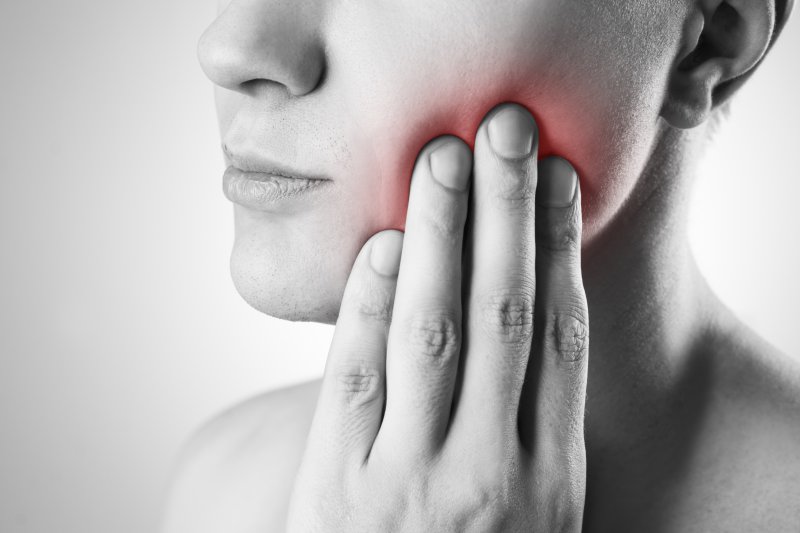Why You Should Address Your Chronic Teeth Grinding Now
August 9, 2019

Teeth grinding and clenching, or bruxism, is a condition that’s estimated to affect 10 percent of adults and 15 percent of children according to the American Sleep Association. While it may not seem like too big of an issue at first, the fact of the matter is bruxism can lead to multiple complications for your oral health, some of which can cause permanent damage to your tooth enamel, gum tissue and jaw joints.
Fortunately, your dentist is able to offer a simple, proven solution with nightguards in Carrollton. If you’re not sure if you or a family member needs a nightguard, consider the symptoms and complications below and how you can get them treated!
Symptoms of Bruxism
The main cause of bruxism is unknown to this day, however, there are many potential causes to keep in mind if you fear that you might have the condition. For example, if you have crooked teeth or an uneven bite, the chances of you grinding and clenching may be higher. If you’ve had a previous jaw injury, it could affect the way your bite comes together when you chew as well. If you suffer from large amounts of stress, you may be more likely to grind your teeth unconsciously, both throughout the day and while you sleep.
If you notice any of the following symptoms or have been already diagnosed with a certain condition, it’s best that you talk to a dentist about teeth grinding.
- Anxiety, depression or insomnia
- Eating disorders
- Chronic headaches or jaw pain
- Ear pain or stuffiness
- Teeth sensitivity
- Difficulty eating or opening your mouth
Complications Related to Bruxism
It’s true that bruxism is not necessarily a dangerous or lethal condition, but that doesn’t mean it can’t still inflict permanent harm to your oral structures. For example, one of the most common complications from bruxism is enamel erosion. Once enamel has broken down, it does not regenerate. If a tooth becomes very weak, it could crack under the pressure, causing a dental emergency.
Furthermore, gum tissue can start to recede, leading to more sensitive areas of your mouth becoming more vulnerable to tooth decay and infection. Not only can your jaw become sore on a regular basis, but the bone inside your jaw can break down and deteriorate the longer you go without treatment.
How You Can Protect Your Smile
The most effective way to protect your tooth enamel and manage symptoms caused by bruxism is by wearing a custom-made nightguard. Nightguards are oral appliances that are worn to protect teeth from grinding and clenching, typically while you sleep. When you choose a nightguard that is custom-made to fit your mouth, rather than a store-bought solution, you’re guaranteed to get the most comfortable fit and the most optimal protection possible.
Are you experiencing symptoms of bruxism? Schedule an appointment with a dentist in Carrollton today to learn how a nightguard can help you protect your smile!
About the Author
Dr. Durga Devarakonda earned her Doctor of Dental Medicine degree from the Tufts University School of Dental Medicine. She works hard to help patients of all ages manage their oral health through comprehensive preventive treatments, including custom-made nightguards. To learn more about teeth grinding and how she can help you stop, you can contact her through her website.
No Comments
No comments yet.
RSS feed for comments on this post.
Sorry, the comment form is closed at this time.
